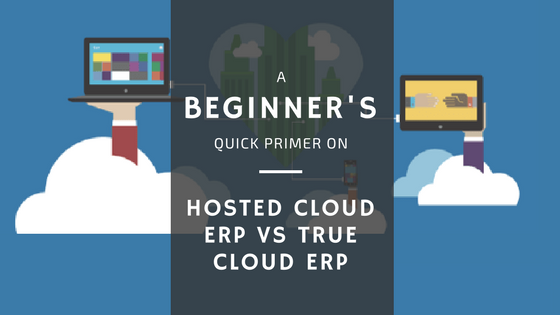So, you’re thinking of investing in an ERP system for your business. You’ve read up a bit, and perhaps you’re leaning towards a Cloud deployment for several reasons.
For one, Cloud ERP solutions offer lower upfront investment costs. They’re also faster to implement. And on top of that, your employees can get things done on the go with easy access anytime, anywhere.
Of course, that’s not the full story.
ON-PREMISE ERP OR ON-CLOUD ERP? READ OUR BLOGPOST FOR A BALANCED OVERVIEW OF THE PROS AND CONS.
But even with the widespread adoption of Cloud-based software, myths and misconceptions continue to dog the industry. Myths that suggest the security and reliability of Cloud ERP leave much to be desired.
To help you make a more informed decision, we’ve tackled three common myths about Cloud ERP below, and shown how a robust ERP solution like Microsoft Dynamics 365 Business Central proves these myths wrong.
Myth 1: Cloud ERP Solutions are a less secure option for hosting my data

You might find the thought of hosting data off-premises uncomfortable, if only because your IT team won’t be in charge of security.
The fact is that a strong infrastructure and security measures are the core focus of ERP developers like Microsoft.
In the case of Business Central, the true Cloud edition is hosted on Microsoft Azure. If you’re not already familiar with it, Azure is a Cloud computing platform similar to Amazon Web Services (AWS).
FIND OUT HOW USING MICROSOFT AZURE CAN BRING YOUR BUSINESS COST SAVINGS AND ADDED FLEXIBILITY.
What’s unique about Azure is that it’s trusted by many large enterprises for their Cloud needs. A number of major companies like SAP have moved their business critical applications onto the platform. There’s a reason why.
Let’s take a quick look at an example of Microsoft’s robust security practices.
200 security experts (out of a 3,500-strong wider team) are responsible for actively finding and patching vulnerabilities in Azure’s infrastructure - in other words, ethical hackers.
These experts battle against each other in teams – one group attempts to compromise the system, and the other puts up a defence and plugs the gaps.
So in other words, you get multi-layered, enterprise-grade security features with your Cloud ERP investment.
And by letting Microsoft handle data security on your behalf, your IT team can be freed from taking care of the back end. Now they can focus on delivering services that add value to your business.
Myth 2: There’s a risk of downtime if I use a Cloud ERP system, leaving my team unable to access my data

At the time of writing, there're no known disruptions to Cloud ERP systems. Nonetheless, the occasional reports of Cloud service outages are frightening enough.
The fact is that it's likely your ERP on the Cloud will remain accessible most of the time.
Microsoft guarantees 99.9% uptime for most of its Azure-based services, including Business Central. That works out to only 9 hours of disruption a year.
As of December 2018, Azure runs off over 40 data centres (comprising more than a million servers) spread across 140 countries, including Singapore.
So in the event one goes down, there’re still plenty of servers with your data on it to go round.
And by delegating the responsibility of server management to Microsoft, you're also charging them with the task of restoring services in the event of downtime.
In other words, you get the peace of mind knowing that a worldwide team is on guard to help get things back to normal.
Myth 3: I cannot control when Cloud updates are deployed, which might be very disruptive for my business

Letting an ERP vendor like Microsoft manage your security on your behalf comes with a trade-off. That is, not having the flexibility of choosing when to install updates.
Nonetheless, you can rest assured that Microsoft has taken care to ensure minimal disruption when each new release is deployed.
You’ll get notice of changes well in advance, so you and your business won’t be caught off-guard. Release notes are distributed simultaneously, so your IT personnel will know what preparations will have to be made.
Updates are also deployed late at night in your timezone, so your operations face as little disruption as possible. These updates will also be seamlessly integrated with your system, so you’ll be ready to go the next morning.
More importantly, these updates introduce new features that you can use to extend your capabilities.
Conclusion
In this article, you’ll have seen that some of the concerns surrounding Cloud ERP solutions are mostly unfounded.
And you’ll have understood how a robust Cloud-based ERP like Microsoft Dynamics 365 Business Central addresses issues of security, reliability, and availability.
If you're ready to discuss a move to the Cloud, just drop us a note here and we'll be in touch soon.

.png)


